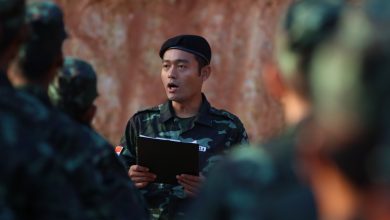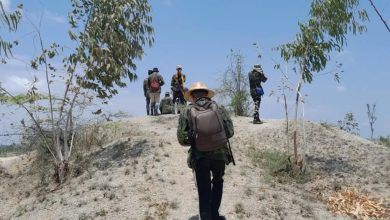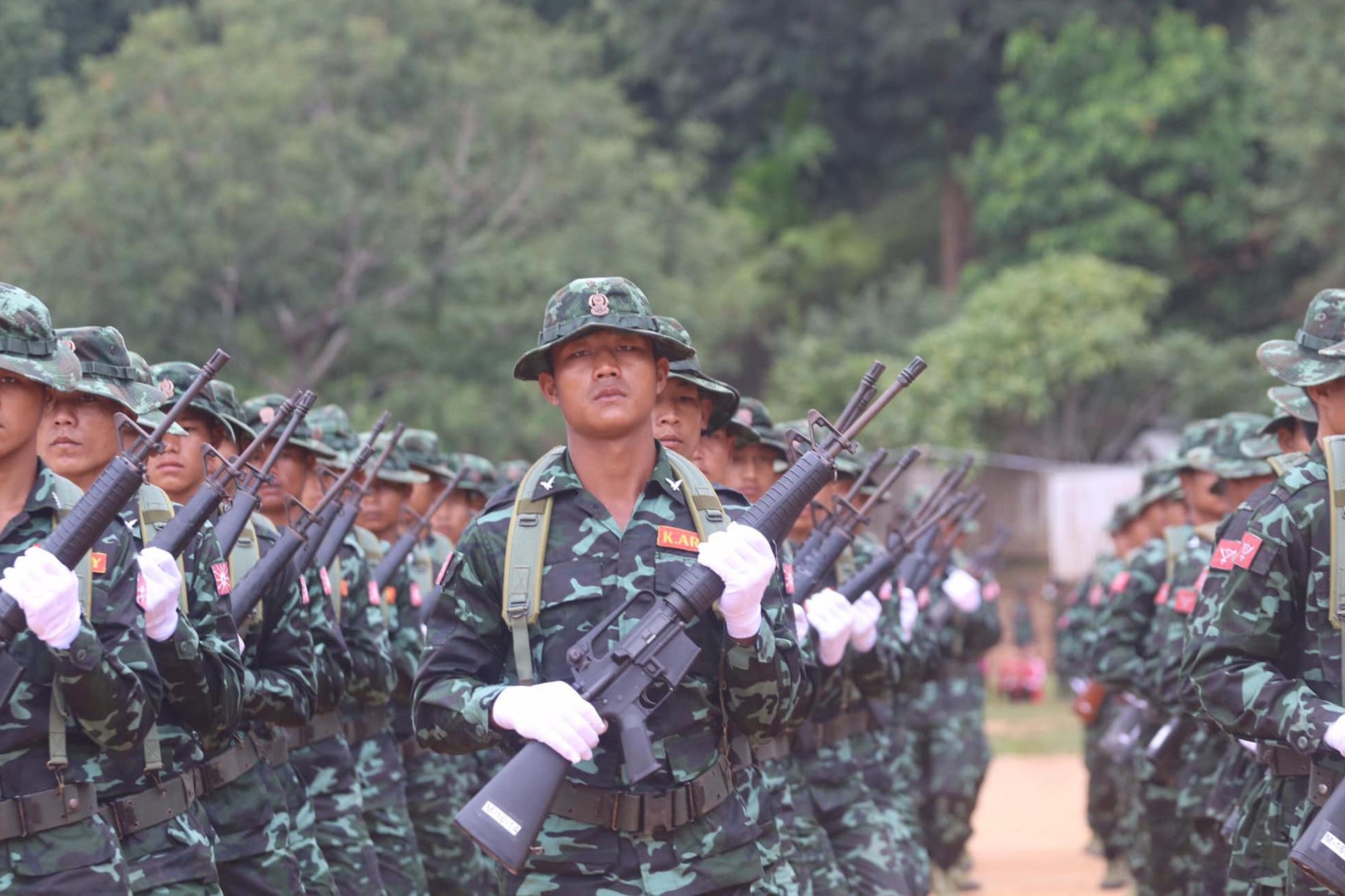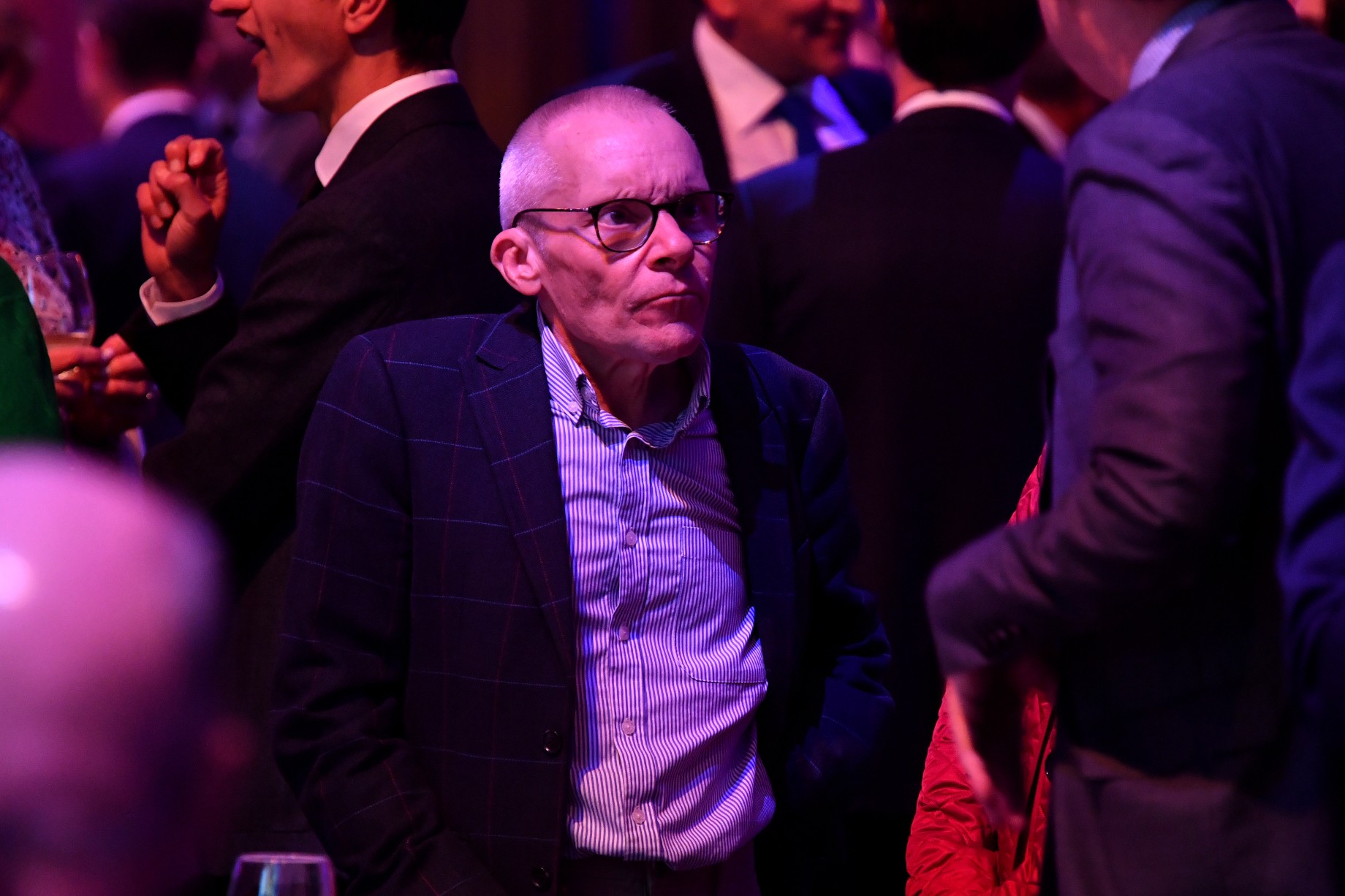
For decades, Thailand has been a top destination for political and economic refugees from neighbouring Myanmar, and since the 2021 military coup, the country has seen a new influx of Myanmar nationals fleeing the junta’s nationwide campaign of violence. Paradoxically, its status as a perceived place of refuge stands in contrast to continued close relations between the Thai and Myanmar military authorities.
In an extensive interview with Myanmar Now, Dr Thitinan Pongsudhirak, a leading scholar on Thai-Myanmar relations, explains the evolving policies of Thailand towards both the Myanmar military junta and anti-regime opposition groups, and explores the question of whether members of the international community might arm Myanmar’s resistance.
Thitinan Pongsudhirak is a professor at the Faculty of Political Science at Chulalongkorn University and a senior fellow at its Institute of Security and International Studies.
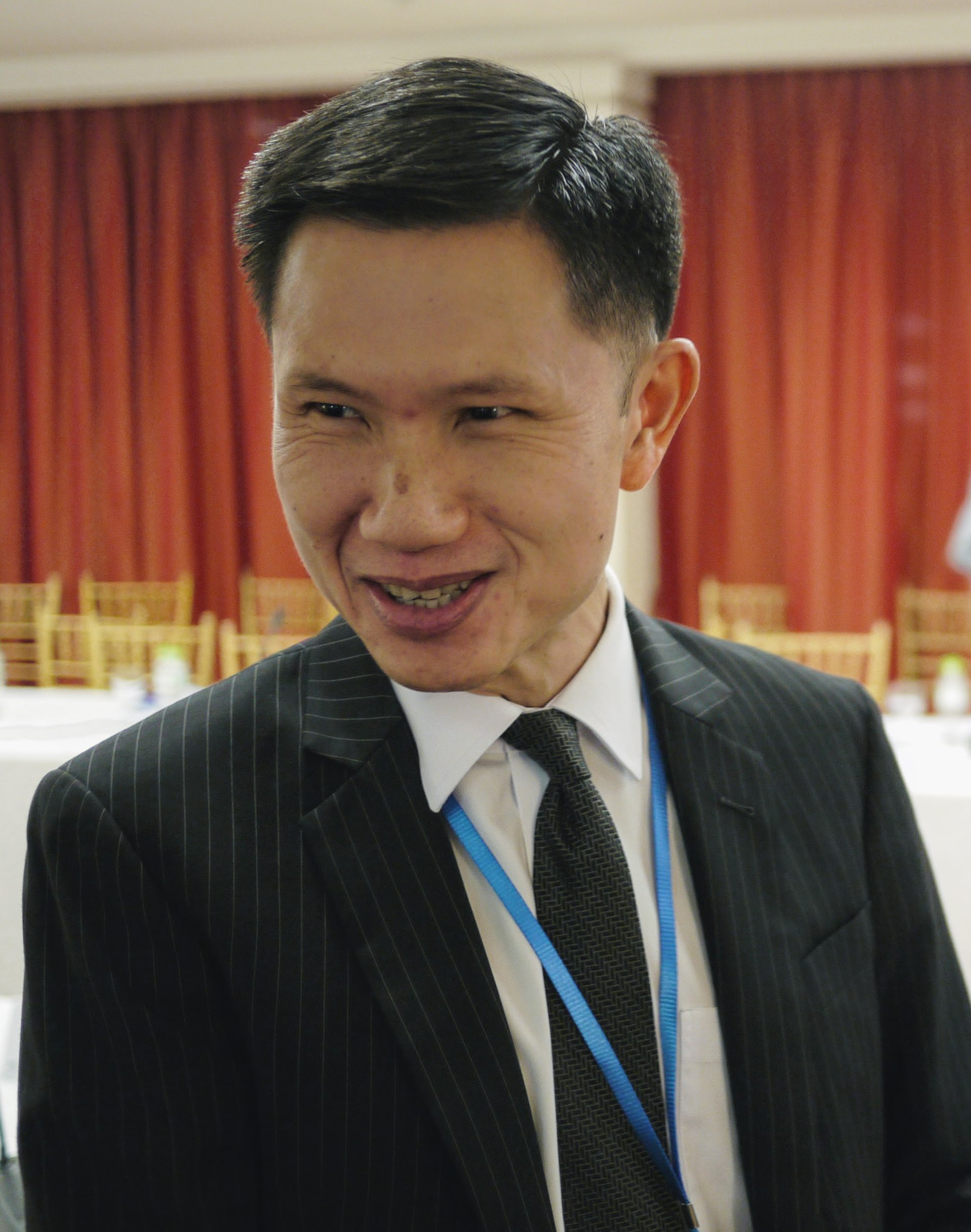
Myanmar Now: How would you describe Thailand’s relationship with the Myanmar military junta?
Thitinan Pongsudhirak: Thai-Myanmar relations go back a long way. The Thai military has been resurgent, and has been in control of politics since the 2014 coup, dating back to the 2006 coup. When we look at Thai-Myanmar relations, we need to look at the early Thaksin period: Thailand stopped using the buffer policy, ‘buffer’ meaning the use of Shan State or Karen State as a kind of buffer to protect against the internal conflicts inside Myanmar. About 20 years ago, the buffer policy was discarded to pursue a relationship between the two sides. You have to understand that when the Thai military took over, it was very close to the Myanmar military. Gen Min Aung Hlaing was very close to Gen Prem [Tinsulanonda]—he was akin to Gen Prem’s godson. When there was a coup in Myanmar on February 1, 2021, Min Aung Hlaing in fact sent a letter to [Thai Prime Minister] Prayuth [Chan-o-cha] asking for understanding and support, which was very out of the ordinary. In addition, you’ll remember that the Thai military also helped send food supplies to the Myanmar military along the border. The Thai military has been very supportive and accommodating to the Myanmar military and of the coup. Thailand has not been supportive of the CDM [Civil Disobedience Movement] or the NUG [National Unity Government] or the PDF [People’s Defence Force]. However, apart from the military government, the Thai officials on the ground have been very accommodating to Myanmar exiles and Myanmar researchers.
There is a two-pronged policy: the Thai government policy has been to appoint a Thai special envoy [on Myanmar]. Her name is Pornpimol [“Pauline” Kanchanalak]. She is a key person, together with [foreign minister] Don [Pramudwinai] They reportedly have a special relationship. She is a convicted lobbyist in the US, and she is now running Thailand’s foreign policy, together with Don.
Thailand has all this time, along the way, been very accommodating and supportive, but I mentioned the two prongs: on the other hand, there has also been a lot of leniency and sympathy and accommodation on the ground for the people who are here from Myanmar. If Thailand closed itself off, if there was no two-pronged policy, no two-track, if there was just one-track, if the military government in Myanmar and if the Prayuth government in Thailand cooperated fully, this would be terrible for the Myanmar exiles and dissidents.
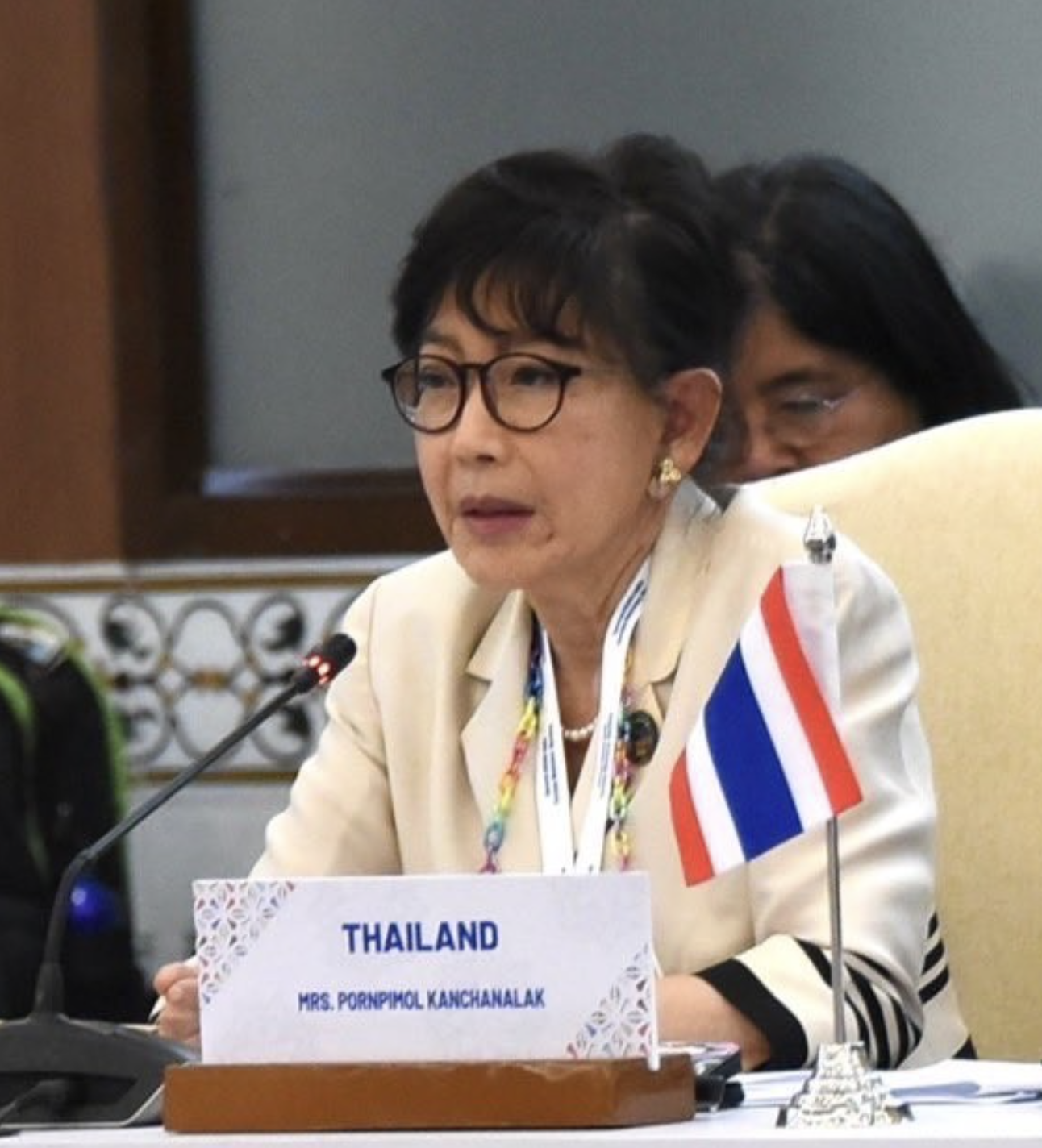
I think also for Thailand, the Thai government and the Thai security establishment, they would be concerned—they would be afraid—that Myanmar could break apart without the military. Without the Myanmar military, there has to be some working arrangement, some assurance that the Myanmar union, that the Myanmar cohesion, that the territorial integrity of Myanmar as a whole will stay together, and that it will not break up into statelets. I wrote in a Bangkok Post article that this is a genuine fear of the Thai government, of the Thai security establishment, and even of the Thai people who have a stake in this. They fear that if Myanmar were to disintegrate, this would really be detrimental for Thailand, because there would be a multifaceted crisis, there would be drugs, there would be crime, there would be all kinds of instability, fighting, civil war, and this would affect Thailand without any control.
I think some people within Thailand, the security establishment, and the Thai government, think the Myanmar military is still in control, and they think that control is still important. So I think the NUG, the NUCC [the National Unity and Consultative Council, a coalition of elected MPs, ethnic armed organisations, and other anti-regime groups], have a big job in trying to reassure people outside and inside that they have a consensus, that they have an agreement about the country moving forward if they can overcome the military.
MN: We see greater cooperation on the part of Thailand towards the Myanmar military junta. You said that the fear of potential Balkanisation in Myanmar—of disintegration—is the primary driving factor for greater cooperation towards the Myanmar military. Is there any other reason for this, economic, political or strategic?
TP: There are other reasons, of course. There are business reasons. [The Thai state-owned oil and gas company] PTT is in Myanmar. There are a lot of vested interests to stay in Myanmar, and some other players are leaving—the Japanese, Europeans. [Special envoy] Pornpimol may possibly be thinking about this, that Thailand could benefit from that vacuum. In addition, and this is a very real concern: Thailand relies on natural gas from Myanmar. It would be naïve to think that the Thai government could rally for the Myanmar democracy movement against the military, because we rely on [its] natural gas. You look at the electricity, and the Russian invasion of Ukraine. The Europeans are suffering from higher energy prices. This is a reality, that we rely on Myanmar for this. There’s not just the breakup of Myanmar, there are business interests, vested interests. Thailand’s energy security from Myanmar is very real.
Another reason is that this government in Thailand, this regime, is a conservative royalist regime. [Such] regimes are not pro-democracy. So this regime cannot be seen as courting a democracy movement, because if they do that, and if in Thailand the democracy movement gains more ground, it is going to be against the interest of and at the expense of the royalist conservative regime. So by definition, this regime in Thailand has a little bit of a ‘common cause,’ maybe not direct support, but certainly some common position or common interest in not seeing the pro-democracy movement in Myanmar succeed. Because that could also have ramifications for Thailand, Thai politics, for the democracy movement in Thailand. So all in all, you are seeing a very accommodating Thai regime, a very accommodating policy of the junta and the Myanmar military for the reasons I mentioned.
Another way to look at it, if there is a different government—there are elections coming up [in Thailand]—will there be a change? I think there will be a significant shift. For example, if there is a new government, there will be a new foreign minister. And that would be a significant change. Because Don and Pornpimpol have been running the Myanmar policy and Thailand’s foreign policy at Thailand’s expense and at ASEAN’s expense. It’s been a horror show, it’s been just horrible. They’ve taken ASEAN hostage and Thailand hostage to their personal preferences, and to their vested interests.
I think if there’s a new foreign minister there could be new room to deal, to provide some space. It would not be a big change, because I think that the official Thai government position would be very cautious. They would not be supporting the NUG, NUCC, CDM, PDF, or EAOs [ethnic armed organisations]. But I think on the ground they might provide more humanitarian assistance. And at the ASEAN level, Thailand might try to do more by playing a bigger role. This year, Indonesia is the chair, so I think Indonesia will try to do as much as it can to come up with some kind of peaceful dialogue. I’m not very hopeful, but I think they will try hard. But if there is a new Thai foreign minister, I think that could be a significant change. Not a big shift in official policy, but on the ground it could be very significant.
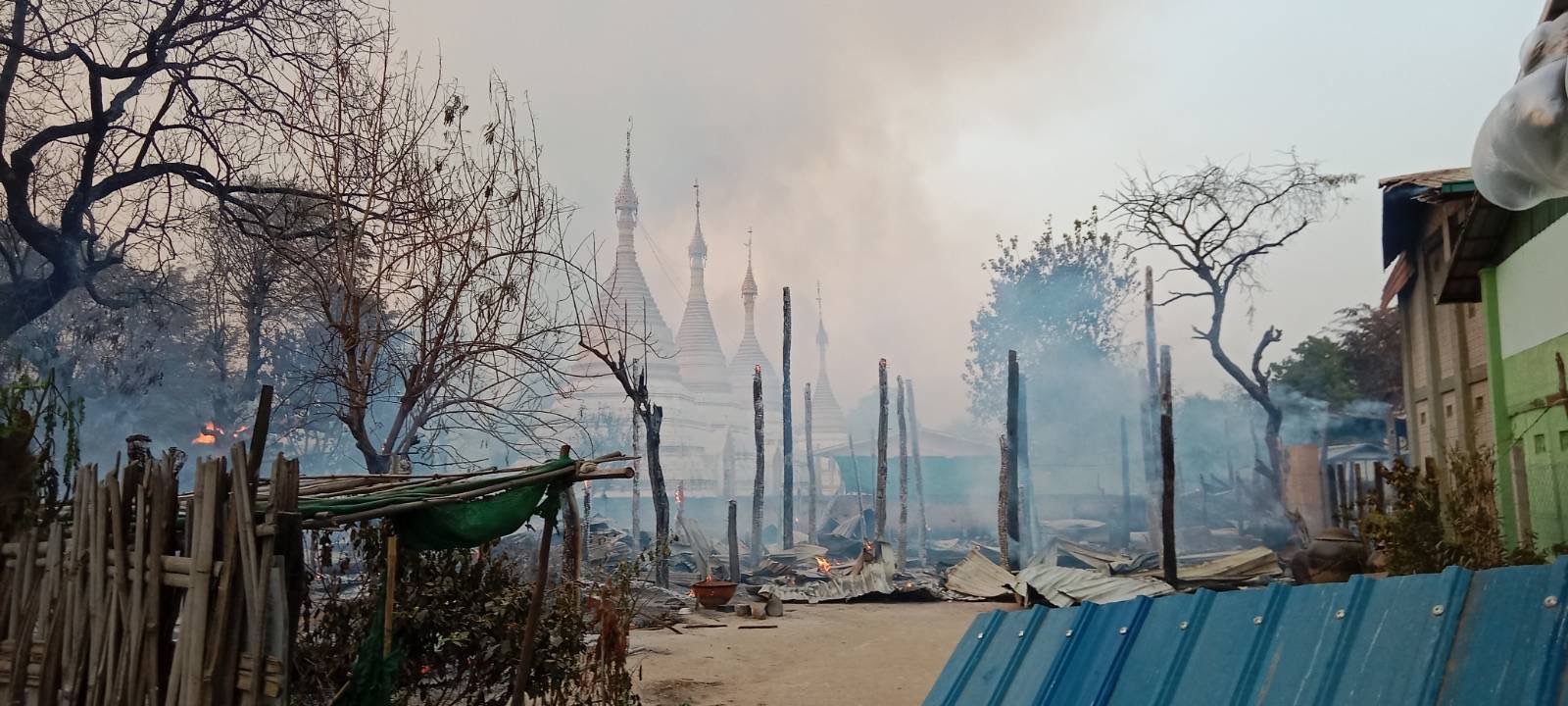
MN: Without Thailand opening its border to the international community, it is impossible to deliver aid to more than 1 million displaced people. Do you think Thailand’s border policy is on the right track? And if not, how could it be changed?
TP: For humanitarian assistance, the official policy is very cautious, but you have to look at the unofficial one. […] If one were to go to Bangkok and go to the Thai foreign ministry and say, we need more channels for humanitarian assistance, they would not get a very good answer, because the whole ministry of foreign affairs’ [approach] on Myanmar is up to the foreign affairs minister and the special envoy. So they have to try to work on the ground in the border areas to try to find some space, some flexibility, some openings for more humanitarian assistance. It might be more ad-hoc, it might not seem routine and systematic, but it will still be helpful.
Second, I would [suggest] work[ing] with the international community… get them to put pressure on the Thai ministry of foreign affairs, the Thai government, the Thai security establishment to have more flexibility for the official policy, and for the unofficial one as well. Along the border area, work with the embassies, but also with the international agencies, the UN, some of the NGOs as well, as they have more leverage to get assistance through. Again, it might not be systematic, it might be under the radar, it might be quiet, but it will still make some difference.
MN: What are your thoughts on ASEAN-led humanitarian access to Myanmar through the border?
TP: It really depends on Thailand. It’s a frontline country. It has a long border. I really hope we have a change of government after the election, because this could change. Always remember, the change in official policy will not be big, but the unofficial change on the ground could be very significant. The Thai government is not going to come out and say they are going to help the CDM, PDF, NUG, and EAOs but on the ground there could be some change. Ultimately, even if Indonesia could broker some dialogue and make some headway with humanitarian assistance—this is one of the points of [ASEAN’s] Five Point Consensus—it still would have to go through Thailand. There will not be planeloads of assistance to Myanmar; it will have to go through the border. I think people could talk to Indonesia to put a little more pressure on the Thai government, or allow more assistance to go through. And for ASEAN humanitarian assistance, it is up to Min Aung Hlaing and the junta… they are not opening up, they are not being receptive. So they have to rely on unofficial informal channels.
MN: The Myanmar regime is not doing anything, apart from releasing thousands of criminal convicts and a few political detainees, as a suggestion that it is complying with the demands of ASEAN and the international community. Do you think Myanmar should be suspended or even expelled from ASEAN?
TP: ASEAN is divided on Myanmar. Indonesia is in the lead this year as chair. If Indonesia cannot make a difference, then not much will be done by ASEAN.
I do think if Thailand has a new foreign minister and new government, that could be significant. If Thailand with a new foreign minister was more forward looking, working with Indonesia, that could be more leverage, more bargaining power. But otherwise, suspending Myanmar technically can be done. Because if they look at the ASEAN charter, it gives the other leaders free[dom] to suspend, expel… they can do anything. But they won’t do it, because it’s very slippery. If they are going to kick Myanmar out or suspend Myanmar for the military coup, Thailand has also had a military coup. Is it for human rights violations? Thailand has grave human rights violations. Cambodia has human rights violations. So it’s a very slippery slope: once they suspend Myanmar, it could be Thailand, Cambodia, Brunei—there’s no clear benchmark to measure and deal with Myanmar.
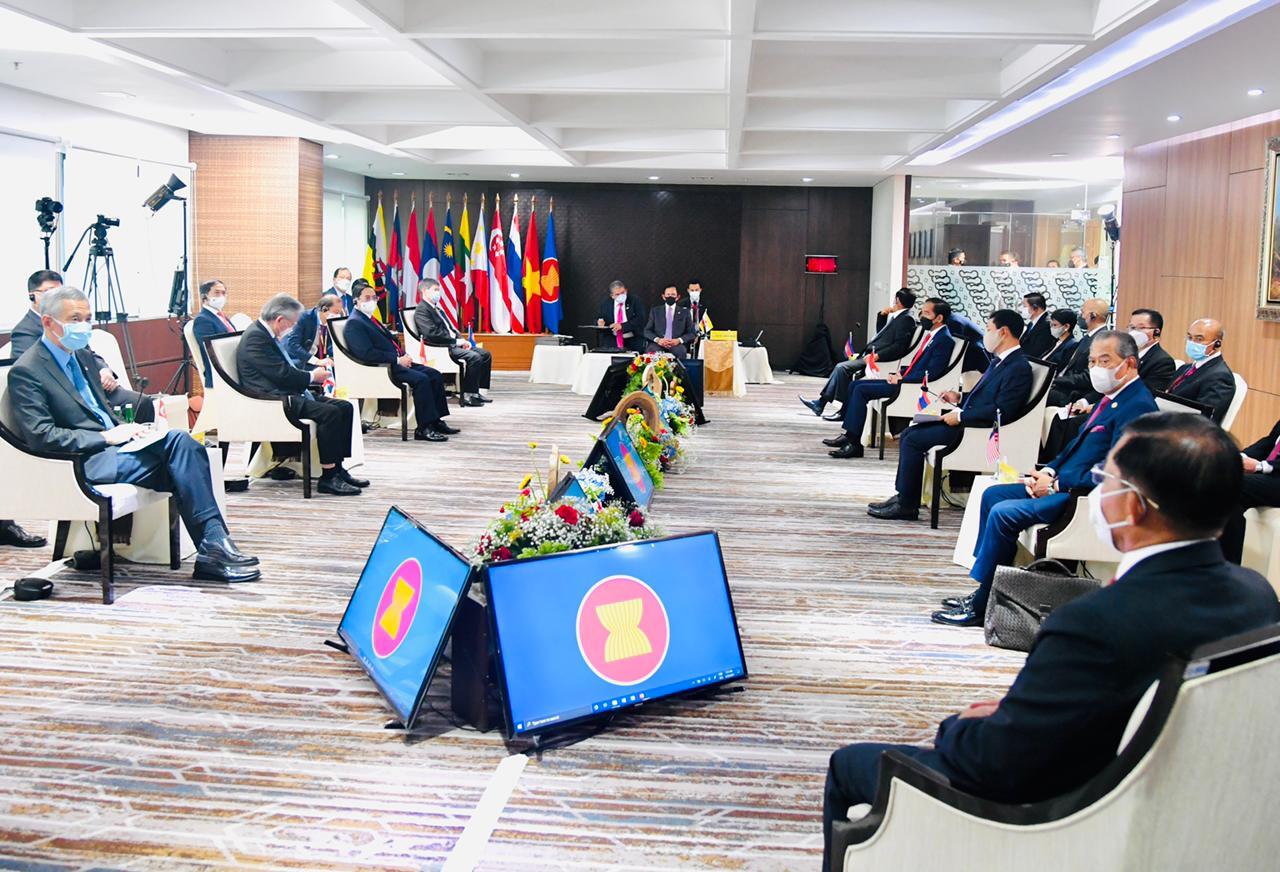
MN: Is it quite significant that the Myanmar junta was restricted from joining the top ASEAN meetings and summits? Isn’t it unprecedented? What brings about these kinds of developments?
I see that as the ASEAN compromise. So ASEAN is suspending Myanmar in a way up to a point. ASEAN chose to do this because Indonesia, Malaysia, the Philippines, and Singapore supported this. They pressed for ASEAN to do something. So ASEAN made a condition that the Myanmar representation has to be non-political. It cannot be the junta. It has to be lower officials, not the military junta. That’s a kind of sanction from ASEAN. It’s also a halfway sanction, because the other countries would not go for any more than that. Myanmar was upset about that, about the summits.
The second reason is that ASEAN has to deal with the bigger powers outside. ASEAN is not stupid. Having Min Aung Hlaing show up will prevent leaders like US President Joe Biden or [Japanese Prime Minister] Fumio Kishida from coming to [ASEAN’s] East Asia Summit. ASEAN is saving itself as well by not allowing Min Aung Hlaing to join this summit.
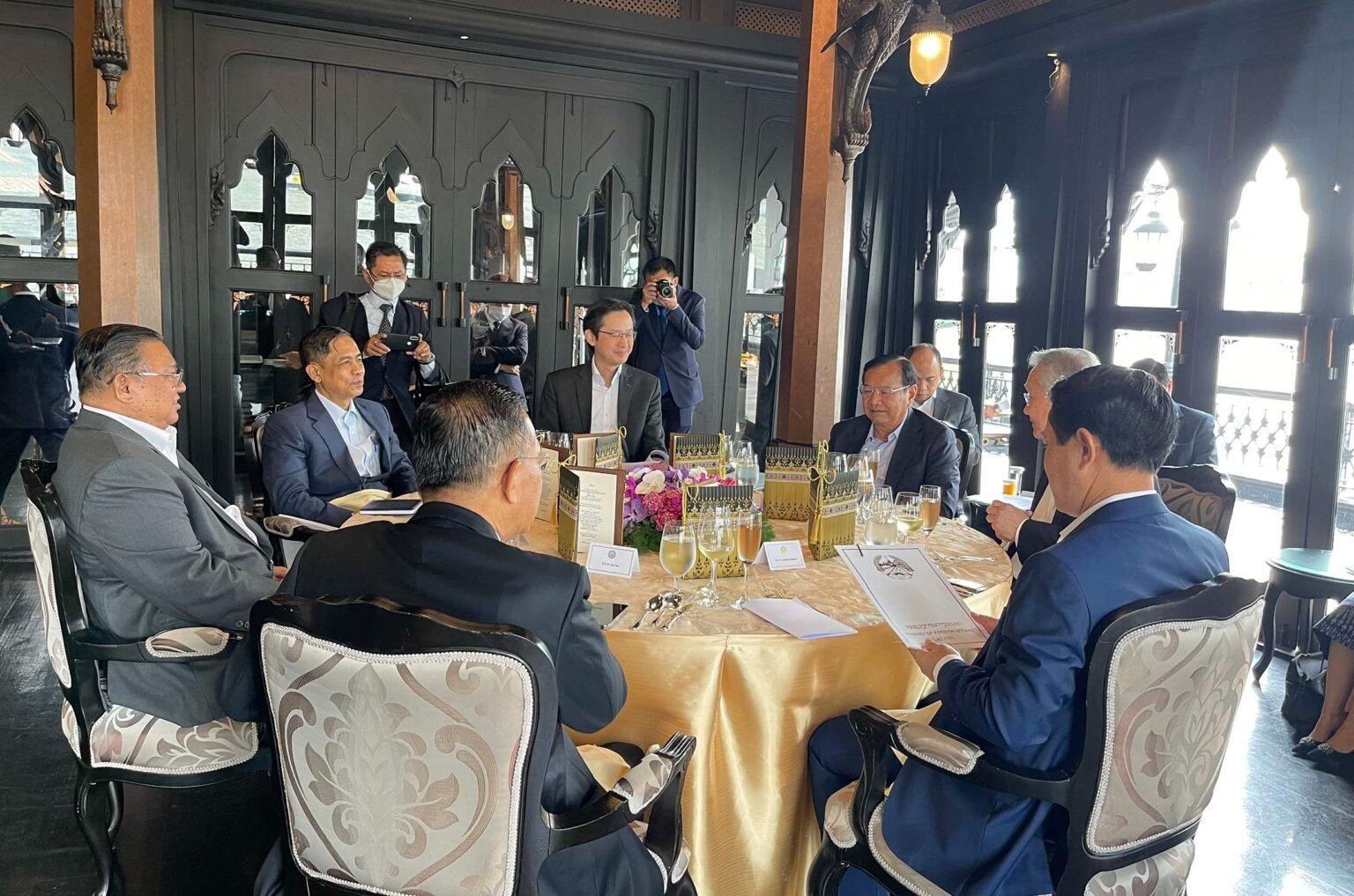
MN: You asked the international community to recognise the civilian government and to deliver critical weapons like those for anti-aircraft purposes to its armed wing. How likely is it that Myanmar’s anti-regime forces will receive such military assistance? What role do you envision Thailand playing if this were to happen?
TP: The NUG can be a viable government, but they have a lot of homework to do. They have the ability to earn some revenue and accept donations. I know that the NUG is able to attract finances and funding. But they have to be able to coordinate and control… the PDFs have to have some workable and unified command. If they have PDF fighting PDF, that will be very bad for the resistance. Everybody will back off, because they will be scared—nobody is going to send military arms or anti-aircraft capabilities to the Myanmar resistance, because they will think that the PDFs cannot control themselves. I think the battlefield will decide how everything will be, so it needs to be a more level playing field, which means a fair fight. So the resistance EAOs, and the PDFs can prevent airstrikes—if they can neutralise airstrikes, that will be a crucial achievement for the ground war.
Now if there are arms, it should be [done] quiet[ly]. Ukraine is not so quiet. For the Myanmar resistance, they have a problem: if the US gives the Myanmar resistance a little bit of arms, compared to Ukraine, who are they going to give it to? How do they know that the arms will be used against the Myanmar military effectively, not just shooting and missing? And how do they know that the arms will not be re-sold on the black market to make money, through corruption? So these are the things that they have to come up with—the NUG, the NUCC, the PDFs, the EAOs, they have to. They need some kind of centralised command, a loosely structured military. Otherwise, it will be very difficult for others to support the sending of arms.
If the arms get through, it would probably be through Thailand, not India or China. China always supplies its own arms to certain ethnic armies. […] Thailand in the past did this already with Cambodia in the 1980s and there was a lot of corruption there. In the end the Cambodian resistance succeeded and overcame the Vietnamese, but here, without arms from outside the resistance has no chance. The best they can get is a stalemate, and the Myanmar military will be able to continue indefinitely.
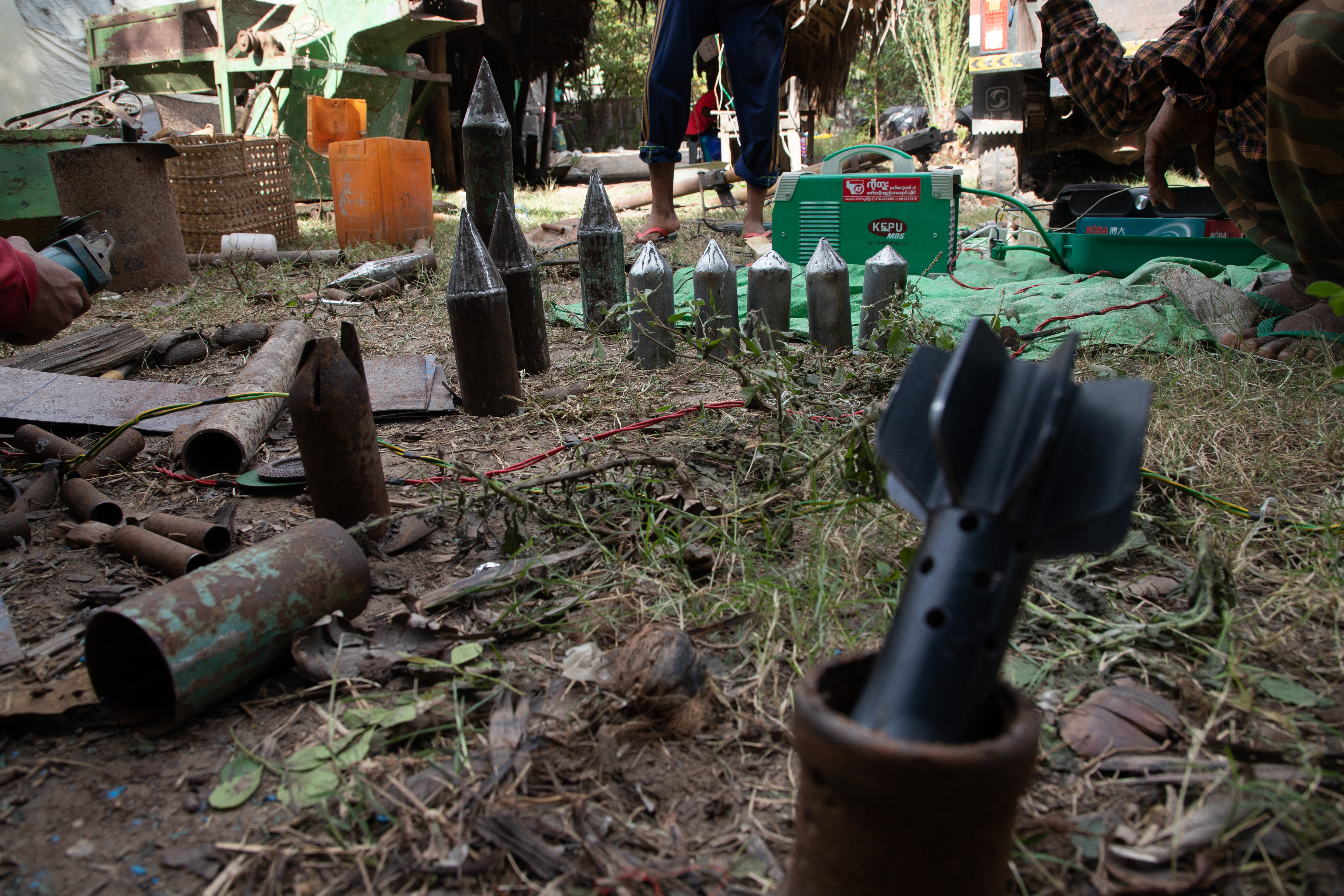
MN: Is there anything you would like to add?
TP: I think this stalemate is very clear. The junta has all of the tanks and the armoury. The PDFs, on the other hand, which are backed by the EAOs and the NUG, also have the determination and the willpower, and that willpower counts for a lot. Now, if the scale tips, in the long-term, I think the Myanmar military does not have the advantage. In the longer term, I think the resistance has the advantage. But my concern would be the cohesion and the strategy and organisation of the resistance. If the resistance can show that they are united and effective—they have shown they are determined, nobody doubts that they are determined, they are very fierce, very brave, there is no doubt—but [it is about] the organisation, integrity, cohesiveness, and the strategy [regarding] what to do if the scale tips. A lot of people are concerned… people will back off if they don’t think the resistance columns have control.
This is what the Thai government thinks: ‘At least [if] the Myanmar military is in power, [we] can deal with them. They are cohesively organised. They’ve got a strategy.’ I completely disagree with them. But to a lot of people this is very important. The NUG can come up with cohesiveness, strategy, organisation, assurance, and then the NUG will be taken more seriously. We are also concerned that in Myanmar’s history, the centre has to be very strong. If the centre collapses, then the country could break up. That’s something that I hope the resistance will think a lot about and work on, and show to people outside, that they are working on it and getting some results.
